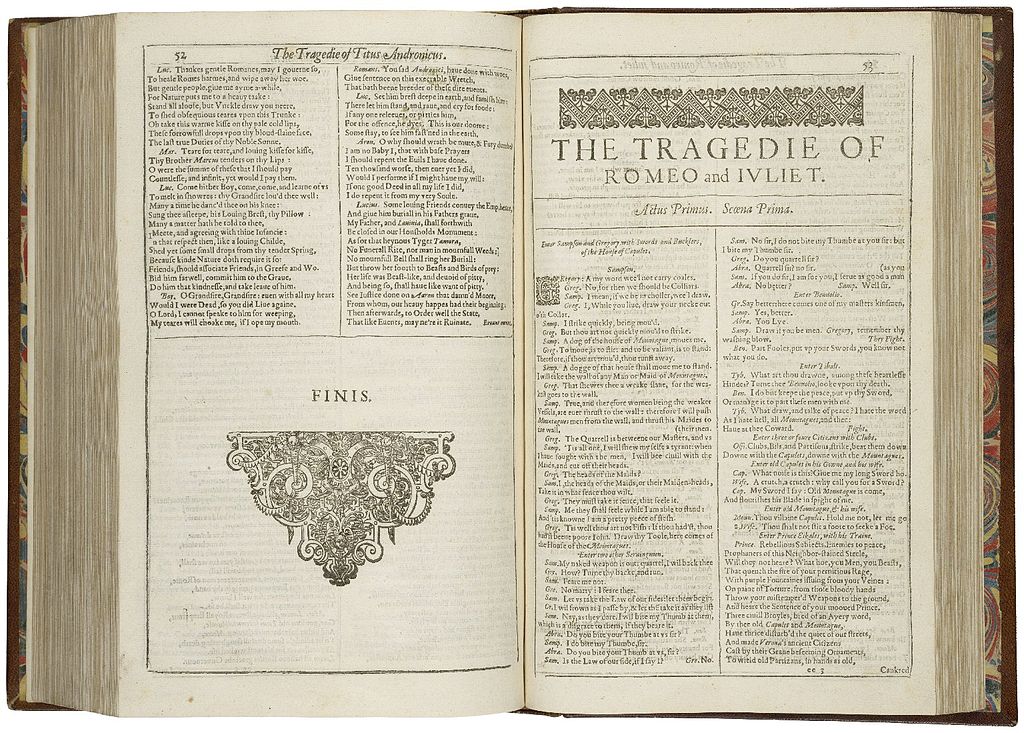
Scene 1
Why does Shakespeare make Act IV exclusively Juliet’s Act? Perhaps he centers on Juliet at this point in order to develop her character as the play’s protagonist. Certainly, Juliet faces her ordeal alone. Turning to Friar Laurence, it is ironic that both Juliet and Count Paris seek him out for opposing reasons—Paris to request that the Friar officiate at his marriage to Juliet and Juliet to seek the Friar’s help in preventing her marriage to the Count. After a brief conversation with Juliet, Count Paris leaves. It is the last time he will see Juliet alive.
Juliet shows admirable restraint and maturity as she faces one grim situation after another. In the previous Act, she deals valiantly with her parents’ insistence that she marry Paris. While she talks with the Count, she displays admirable composure, but when he leaves, she gives vent to her despair and is close to committing suicide. However, she agrees to the Friar’s plan. Two scenes later, she courageously faces the unknown by drinking the Friar’s potion. There’s much to admire in Juliet.
The class should appreciate the Friar’s ingenious plan that will prevent Juliet’s marriage to the Count. He will give Juliet a drug to induce in her a deathlike coma for forty-two hours. Her parents will discover her apparently dead, and she will be buried the family vault. A messenger will travel to Mantua to instruct Romeo to rescue Juliet from the Capulets’ vault and take her back to live with him in Mantua. Teachers should be prepared for teenagers’ objection that this plan is needlessly complicated. The Friar should simply have told the respective parents about their children’s marriage.
Scene 2
A further complication arises when Lord Capulet advances the wedding by one day. His wife is dismayed since her mind runs on practical matters such as adequate time for wedding preparations. This hasty alteration in the wedding date is an example of coincidence, one that will prove to be fatal for the lovers. Juliet will still be in a coma when Romeo arrives at her grave, and, because he does not receive the Friar’s message, Romeo will assume she is dead.
Scene 3
After Juliet persuades her mother to leave her alone so that she can swallow the potion, Shakespeare makes Juliet’s torment very real. During her long soliloquy, her mind darts from one horrifying possibility to another. Students should note the dreadful scenarios she imagines: Perhaps the liquid won’t work, maybe it’s a poison that will extricate the Friar from any involvement in the marriage, perhaps she’ll regain consciousness before Romeo arrives and suffocate in the vault, or perhaps she’ll go insane with horror at being entombed with other dead Capulets. It is also important to note that curtains hide Juliet as she falls on her bed unconscious, a detail that delays the discovery of her apparent death thus building suspense.
Scene 4
This scene is a superb example of dramatic irony: The Capulets joyfully prepare for their daughter’s marriage to the Count while the bride lies on her bed apparently dead. The scene creates sustained suspense.
Scene 5
The Nurse’s sorrow is noisy and repetitive, but it is heart-breaking to witness the parents’ grief when we recall that the last time they were with Juliet, they abused and disowned her. The Friar can only rebuke the parents with glib assurances that their daughter is in a better place. I usually disregard the musicians’ lines that end the scene, although the interlude does provide some relief from the tragic events. The irritating Nurse has spoken her last lines in the play.
At this point, one should evaluate Juliet’s parents. They certainly love their only child. Lord Capulet has already mentioned that their other children have died, and they want their only remaining child to marry well; however, they are unreasonable when Juliet doesn’t agree to marry the man they have chosen for her, and they fail to communicate adequately with her.
The major issues in Act IV are these:
- examples of dramatic irony
- trials Juliet must face
- the Friar’s plan
About the Author
Written by Elizabeth McCallum Marlow
I taught all aspects of the English curriculum at various colleges and private schools for 35 years. I now want to give back what I learned in the classroom about conveying to students a love for literature and a desire to write cogently. I would love to receive comments and questions that can be addressed to me at www.eamarlow0103@gmail.com.

